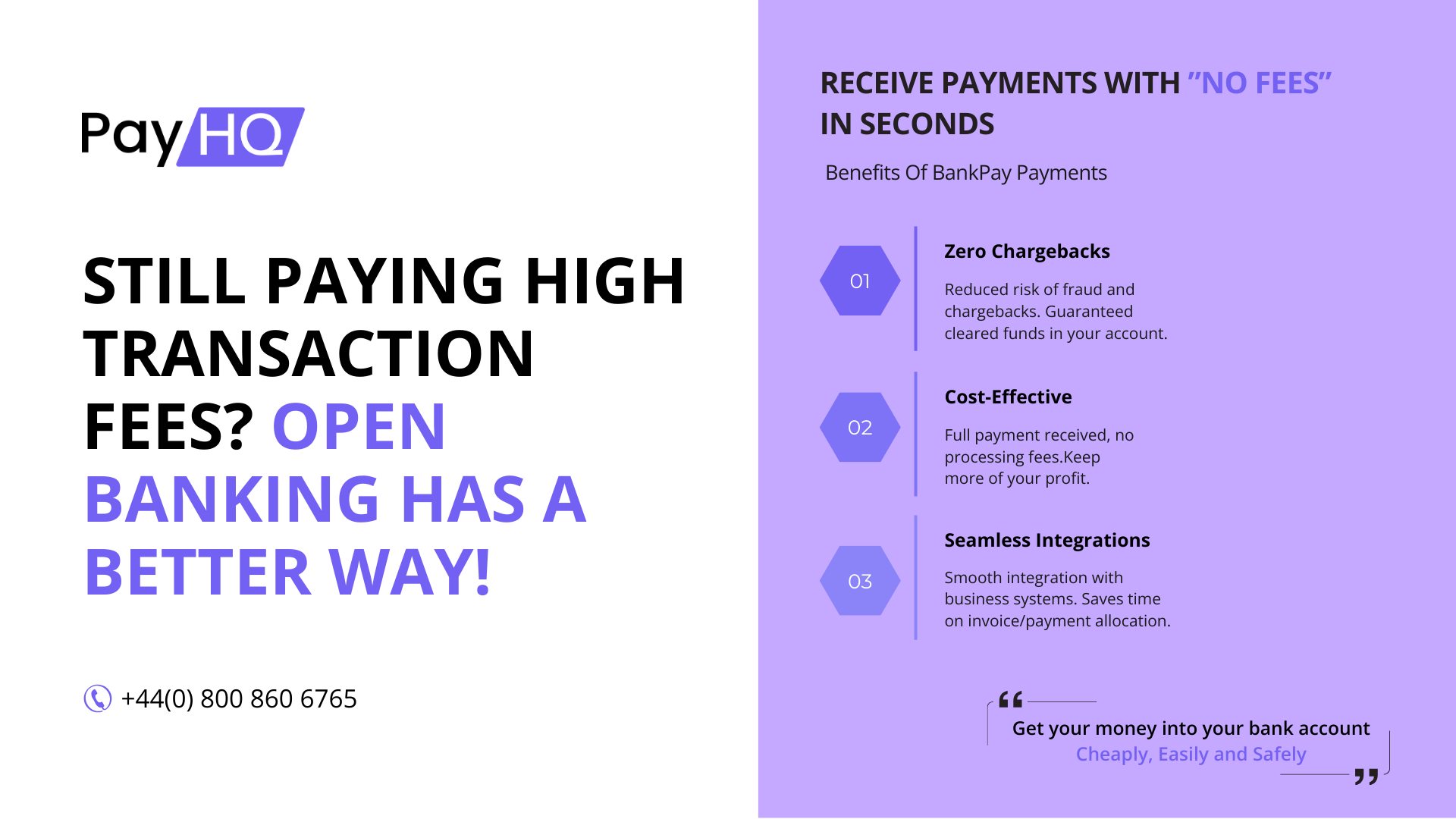How Open Banking is Disrupting Traditional Payment Gateways
How Open Banking is Disrupting Traditional Payment Gateways

The Evolution of Payment Gateways
As businesses continue to evolve in the digital economy, the demand for seamless, cost-effective, and secure payment solutions has never been greater. Traditional payment gateways, reliant on card networks and intermediaries, are often costly, slow, and prone to fraud. However, open banking is rapidly transforming this landscape by offering direct account-to-account (A2A) payments, reducing costs, enhancing security, and improving financial efficiency.
In this article, we explore how open banking is disrupting traditional payment gateways, the advantages it offers, and how PayHQ.ai is pioneering this shift by integrating traditional gateways with unified payment systems to help businesses streamline their payment operations.
What is Open Banking and How is it Changing Payment Gateways?
Open banking enables businesses to process payments directly from customer bank accounts without relying on card networks. By leveraging Payment Initiation Services (PIS) and Account Information Services (AIS), open banking provides real-time payments, enhanced security, and lower transaction costs.
How does this differ from traditional payment gateways?
- Traditional Payment Gateways: Rely on card networks (Visa, Mastercard) and intermediaries, leading to higher fees and longer settlement times.
- Open Banking Payment Gateways: Facilitate direct bank transfers, bypassing card networks and reducing costs significantly.
With PayHQ.ai, businesses can integrate both traditional payment methods and open banking transactions into a unified payment gateway, offering flexibility, reduced costs, and enhanced security.
Key Benefits of Open Banking in Payment Processing
- Lower Transaction Costs
- Traditional payment gateways charge interchange fees, processing fees, and network charges, increasing overall costs.
- Open banking bypasses these intermediaries, reducing transaction fees by up to 90%.
- Businesses using open banking solutions like PayHQ.ai can save thousands annually on payment processing.
Statistic: UK businesses adopting open banking payments report an average transaction cost reduction of £20,000 per year (Source: UK Finance).
- Instant Payments and Improved Cash Flow
- Traditional card payments often take 2–3 days to settle, delaying access to funds.
- Open banking payments are instant or same-day, ensuring businesses receive payments faster.
- PayHQ.ai offers real-time reconciliation, allowing businesses to track payments seamlessly.
Statistic: Businesses using instant open banking payments experience a 30% improvement in cash flow management (Source: Deloitte UK).
- Enhanced Security and Fraud Prevention
- Card payments are prone to fraud, chargebacks, and data breaches.
- Open banking transactions require strong customer authentication (SCA), reducing fraud risks.
- PayHQ.ai integrates AI-driven fraud detection to minimise financial losses.
Statistic: Open banking reduces fraud rates by 50% compared to traditional card payments (Source: Financial Conduct Authority UK).
- Unified Payment Gateway for Greater Flexibility
- Businesses often juggle multiple payment systems, leading to inefficiencies.
- PayHQ.ai combines traditional card processing, digital wallets, and open banking payments into one platform, streamlining financial operations.
- This flexibility enables businesses to offer multiple payment options while optimising costs.
Statistic: Companies using unified payment gateways increase operational efficiency by 40% (Source: PwC UK).
- Seamless Integration with Existing Systems
- Open banking payments via PayHQ.ai integrate effortlessly with CRM, ERP, e-commerce, and accounting systems.
- Businesses can embed payment links into invoices, automate reconciliations, and improve financial reporting.
- A unified payment solution eliminates the need for manual processing, reducing administrative workload.
Statistic: Businesses embedding open banking payments in their accounting systems reduce financial admin time by 65% (Source: Deloitte UK).
How PayHQ.ai is Revolutionising Payment Gateways
PayHQ.ai is leading the shift towards unified payment solutions by integrating both traditional payment gateways and open banking-powered payments into a single, streamlined platform.
✅ A True Unified Payment Gateway: Businesses can process card payments, direct bank transfers, digital wallets, and recurring payments all from one platform.
✅ Cost-Effective Transactions: PayHQ.ai enables businesses to prioritise open banking payments where applicable, cutting transaction costs.
✅ Instant Payment Links for Invoices: Businesses can embed real-time payment links into invoices, reducing late payments and improving cash flow.
✅ Real-Time Financial Insights: With AIS integration, businesses gain real-time visibility into cash flow, expenses, and payment trends.
✅ Advanced Security & Fraud Prevention: AI-driven fraud detection, SCA compliance, and encrypted transactions keep payments secure.
Industries Benefiting from Open Banking-Powered Unified Gateways
📌 E-Commerce & Retail: Faster, cheaper transactions, and reduced cart abandonment.
📌 Subscription Services: Automate recurring payments via open banking, reducing failed transactions.
📌 Freelancers & Service-Based Businesses: Get paid instantly with embedded bank transfer links in invoices.
📌 Marketplaces & Gig Economy Platforms: Simplify payouts with instant bank transfers instead of slow card processing.
📌 Financial Services & Lending: Real-time affordability assessments with AIS-powered financial insights.
PayHQ.ai is leading the charge in unified payment solutions.
✅ Save up to 90% on transaction fees with direct bank transfers.
✅ Improve cash flow with instant settlements.
✅ Reduce fraud and chargebacks with secure open banking authentication.
✅ Seamless integration with CRM, ERP, and financial systems.
✅ Offer multiple payment methods via a single, unified gateway.
As businesses continue their digital transformation, integrating open banking into a unified payment gateway is no longer optional—it’s essential for financial efficiency and growth.


